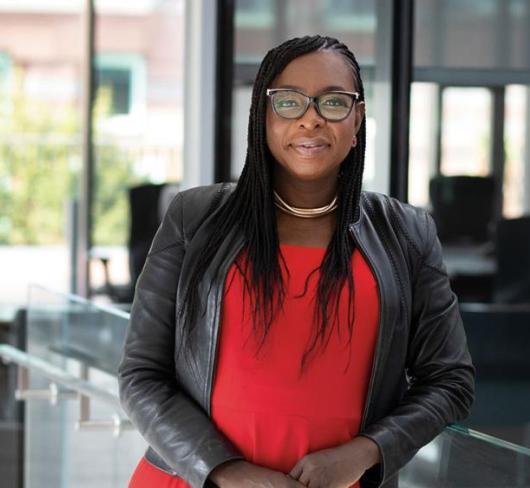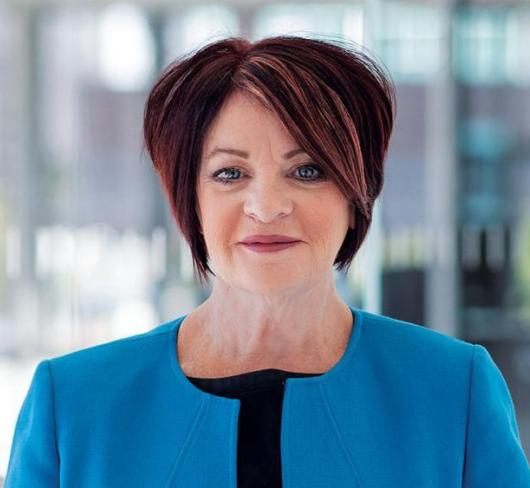Learn with Me Creating a Caring Environment (Equity and Women's Services)
“The pursuit of self-knowledge —knowledge of the self as an individual, as a male or female, as a member of a race and community, as part of a particular age group — blends easily into a study of relations with others. Part of learning to care for one’s self is a concomitant learning to care for others.”1
How do we support one another in our endeavours to learn?
Educational theorist Nel Noddings believes there is a need to approach learning as a community that is enriched by support and encouragement. However, it takes time to nurture and build relationships. It is also important to recognize that groups change and evolve and so should the strategies we use in the process. Discovering and trying out new ways to work together with respect can help us create safe and caring environments where professional and personal growth can occur.
Most of us are able to recognize the limitations of our knowledge. We are also keenly aware that building our knowledge can help us understand equity issues that are outside of our own experiences. But how do we support one another in accessing new knowledge? Our workdays are full; yet there remains an expectation that we make and take time to critically reflect on our practice, in an effort to improve our daily work. Critical reflection is often highlighted as one step toward change. However, without acquiring new knowledge, we can be left with limited options in moving toward our goals.
ETFO members embark on various ways to gain new knowledge. One way is through reading and discussing current research and another is by sharing our perspectives on issues through focused conversations. These strategies look to the collective and can help us challenge some of the limitations of individualistic thinking.
Several teachers recently decided to participate in a program to build their knowledge together. Marsha Jones, Darline Pomeroy, and Crystal Donato are part of the Kawartha Pine Ridge Teacher and Occasional Teacher Locals’ joint equity and diversity committee. They share their thoughts about participating in an Equity and Women Services program.
Marsha Jones
“The equity and diversity committee of ETFO Kawartha Pine Ridge consists of both contract and occasional teachers. I was very quick to agree to participate in a professional learning community with this group of members who are committed to social justice issues.”
“When we selected our event in preparation for application, I was confident that I could always improve my ‘communication’ skills. Though this was the descriptor used in the presentation flyer, I had never considered that I would learn about communicating with myself. I did manage to take some positive messages from the required reading. Our connections among the group began when we all questioned the theories presented.
“Prior to attending the face-to-face portion of the PLC, we had time to discuss the print material and, as an aside, to share our personal stories. Through these sessions and our time together in Toronto, we learned a great deal about each other’s experiences, joys, and challenges. This has been helpful in creating a solid base for our equity work. Our committee has become a cohesive group that is willing to work to achieve ambitious goals for the betterment of groups of people within and beyond our community.”
“In the climate in which we are living, individuals often hesitate to take on another responsibility. Though a commitment of time and effort was required, the strengthening of our relationships was well worth the energy expended. I would recommend that any group of colleagues participate in a similar opportunity.”
Darline Pomeroy
“For me, the participation in the recent PLC by members of our equity committee exceeded all of the original hopes that I held for the venture. Initially, as committee chair, I saw group participation as an opportunity to amplify and extend the learning that could potentially take place. I saw it as a method of using something that was unique and innovative to motivate members. I felt certain that building and strengthening relationships among committee members would have a direct impact on the commitment they would bring to the committee’s equity work.”
“The experience met these initial expectations and much, much more! The power of the collective and group dynamics had a huge impact on all aspects of this quest for knowledge. The phenomenal sharing that took place among the group members involved taking a risk and sharing innermost thoughts and personal experiences. The group ended up selecting a PLC and a text that few of the participants would have chosen independently. We met to discuss readings and communicated via e-mail during the PLC.”
“We met again the evening prior having a full day of release time to conclude the PLC. The group stated unanimously that even before the next day’s workshop we felt that the experience was successful, well beyond what any member might have anticipated. The committee is one of the most committed and dedicated that I have had an opportunity to work with and will no doubt take on new and valuable opportunities to extend themselves both in the knowledge and learning they acquire regarding equity issues and the commendable social justice initiatives we undertake together.”
Crystal Donato
“I was fortunate to have the opportunity to learn in collaboration with other women from my local’s equity committee. Attending the PLC on my own would have been a great learning experience; however, being able to share in it with colleagues who I got to know over the last couple of years was worth more than I could have ever imagined. The conversations we had deepened my learning. Together, we were able to go beyond the book we were reading and discuss in depth what it meant to us in our daily lives and in our classrooms. Without this support and these conversations, my learning experience would not have been as rich and I would not have gained as much from the experience. I am thankful to have had this opportunity.”
Source
1. Nel Noddings, Educating Moral People: A Caring Alternative to Character Education, New York: Teachers College Press, 2002, p. 35.

